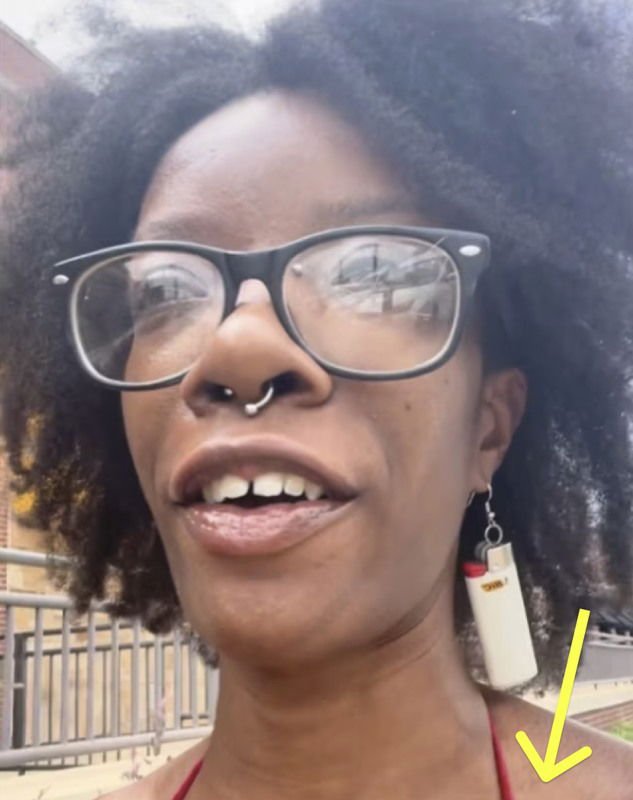Aireal Bonner found herself at the center of a heated controversy after being asked to leave a Birmingham restaurant, Southern Kitchen & Bar, over what they described as an “inappropriate” outfit. Bonner, however, strongly believes there was more to the story than just her choice of clothing. The incident, which first made headlines in August 2021, sparked an intense debate about discrimination and racial profiling in private businesses.

Bonner said she was “rudely mistreated” when staff at Southern Kitchen & Bar ordered her to leave. According to Bonner, she was sitting at her table, ready to enjoy a meal, when a manager approached and informed her that her attire violated the restaurant’s dress code. Bonner was wearing a crocheted top that she said made her feel comfortable and happy. However, the restaurant’s staff referred to it as a “bikini top” and insisted it was inappropriate for their establishment.
When Bonner asked to see the restaurant’s dress code policy, she was told there was no requirement to post it publicly because Southern Kitchen & Bar is a private business. Despite Bonner’s protest, another manager offered her a t-shirt to wear over her top. She declined the offer, feeling that she was being unfairly singled out. After refusing to cover up, Bonner was asked to leave. The manager even threatened to call the police if she didn’t comply.
In a video posted to her Facebook account, Bonner explained her side of the story. “I was threatened with police action simply because I wanted to sit and eat in an outfit that I felt comfortable and happy in,” she wrote. “There was no customer complaint that prompted the situation. This was purely the way that the ‘owner’ chose to run his business.”
Bonner expressed deep skepticism about the true motivation behind her removal. Speaking with CBS 42, she explained, “My clothing was an excuse to not have me dine there. I think the biggest issue with my appearance is that I look very Afro-centric. My hair is an Afro texture. The way that I dress is Afro-centric. So I believe that because they can’t directly say things like ‘We don’t like the color of your skin, we don’t like the way that your hair looks,’ my clothing was just used as an excuse.”
The restaurant, in response to the growing backlash, posted a statement on its Facebook page. In the statement, Southern Kitchen & Bar stood by its decision, claiming that Bonner’s attire did not align with its policy on appropriate dress. However, the restaurant also admitted that the timing of the confrontation was poorly handled. Staff waited until Bonner was already seated before bringing up the issue, rather than addressing it at the door.
“We regret interrupting Ms. Bonner’s dinner and understand that would make anyone feel uncomfortable,” the restaurant’s statement read. They further added that they were working on creating “more rigid protocols” for enforcing the dress code moving forward, including addressing any attire concerns as guests enter the restaurant, not after they are seated. “We have done and will continue to do the work to ensure our restaurant is a place where all feel welcome,” the statement concluded.
Despite the apology, Bonner wasn’t satisfied. She dismissed the restaurant’s response as inadequate and insincere. “The apparent ‘apology’ statement for the TIMING on when I was confronted about a nonexistent dress code is as I said before…LAUGHABLE,” Bonner wrote in another social media post. She then encouraged her followers to flood the restaurant’s social media pages with negative reviews. The backlash led to Southern Kitchen & Bar’s Yelp page being temporarily taken down due to the volume of comments.
The controversy attracted the attention of Alabama Rally Against Injustice, an activist group that quickly organized a sit-in protest at the restaurant. The group argued that Southern Kitchen & Bar’s actions were discriminatory. They pointed out that photos on the restaurant’s own social media accounts showed other women wearing similar outfits who were not asked to leave. “Private businesses have the right to run their establishment how they see fit, but their discrimination will not be tolerated,” the group stated.
For Bonner, the experience left a lasting impression. What began as a night out for dinner turned into a public fight against what she believes was racial profiling masked as a dress code enforcement.





